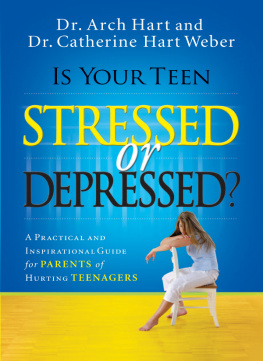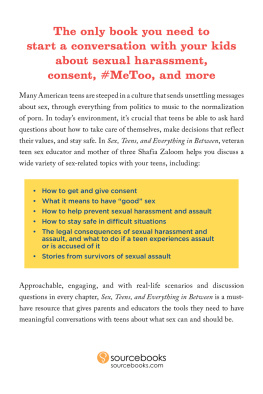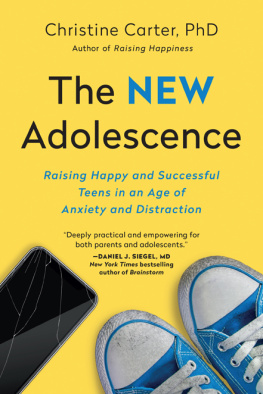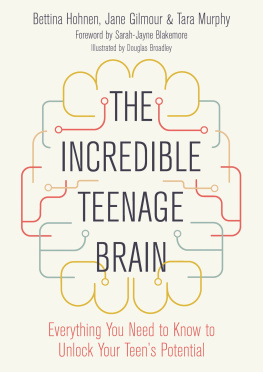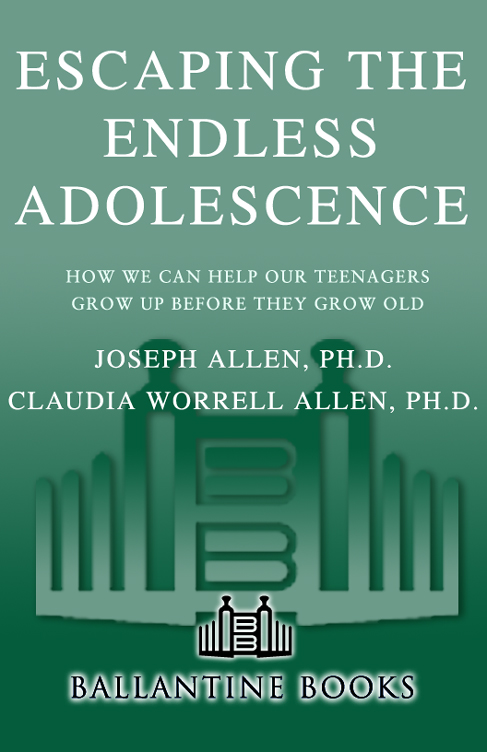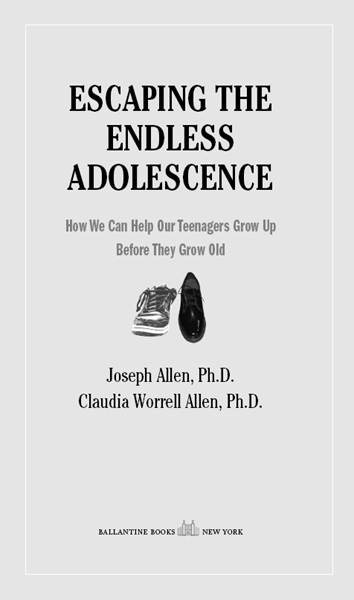Joseph Allen - Escaping the Endless Adolescence: How We Can Help Our Teenagers Grow Up Before They Grow Old
Here you can read online Joseph Allen - Escaping the Endless Adolescence: How We Can Help Our Teenagers Grow Up Before They Grow Old full text of the book (entire story) in english for free. Download pdf and epub, get meaning, cover and reviews about this ebook. year: 2009, publisher: Ballantine Books, genre: Home and family. Description of the work, (preface) as well as reviews are available. Best literature library LitArk.com created for fans of good reading and offers a wide selection of genres:
Romance novel
Science fiction
Adventure
Detective
Science
History
Home and family
Prose
Art
Politics
Computer
Non-fiction
Religion
Business
Children
Humor
Choose a favorite category and find really read worthwhile books. Enjoy immersion in the world of imagination, feel the emotions of the characters or learn something new for yourself, make an fascinating discovery.

- Book:Escaping the Endless Adolescence: How We Can Help Our Teenagers Grow Up Before They Grow Old
- Author:
- Publisher:Ballantine Books
- Genre:
- Year:2009
- Rating:5 / 5
- Favourites:Add to favourites
- Your mark:
Escaping the Endless Adolescence: How We Can Help Our Teenagers Grow Up Before They Grow Old: summary, description and annotation
We offer to read an annotation, description, summary or preface (depends on what the author of the book "Escaping the Endless Adolescence: How We Can Help Our Teenagers Grow Up Before They Grow Old" wrote himself). If you haven't found the necessary information about the book — write in the comments, we will try to find it.
Welcome to the stunted world of the Endless Adolescence. Recent studies show that todays teenagers are more anxious and stressed and less independent and motivated to grow up than ever before. Twenty-five is rapidly becoming the new fifteen for a generation suffering from a debilitating failure to launch. Now two preeminent clinical psychologists tell us why and chart a groundbreaking escape route for teens and parents.
Drawing on their extensive research and practice, Joseph Allen and Claudia Worrell Allen show that most teen problems are not hardwired into teens brains and hormones but grow instead out of a Nurture Paradox in which our efforts to support our teens by shielding them from the growth-spurring rigors and rewards of the adult world have backfired badly. With compelling examples and practical and profound suggestions, the authors outline a novel approach for producing dramatic leaps forward in teen maturity, including
Turn Consumers into Contributors Help teens experience adult maturityits bumps and its joysthrough the right kind of employment or volunteer activity.
Feed Them with Feedback Let teens see and hear how the larger world perceives them. Shielding them from criticismconstructive or otherwisewill only leave them unequipped to deal with it when they get to the real world.
Provide Adult Connections Even though theyll deny it, teens desperately need to interact with adults (including parents) on a more mature leveland such interaction will help them blossom!
Stretch the Teen Envelope Do fewer things for teens that they can do for themselves, and give them tasks just beyond their current level of competence and comfort.
Todays teens are starved for the lost fundamentals they need to really grow: adult connections and the adult rewards of autonomy, competence, and mastery. Restoring these will help them unlearn their adolescent helplessness and grow into adults who can make youand themselvesproud.
Joseph Allen: author's other books
Who wrote Escaping the Endless Adolescence: How We Can Help Our Teenagers Grow Up Before They Grow Old? Find out the surname, the name of the author of the book and a list of all author's works by series.



